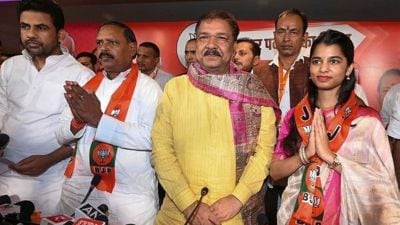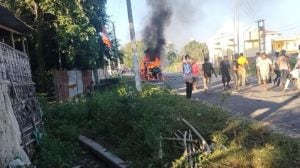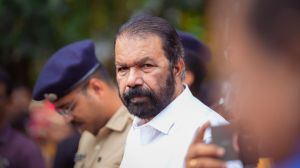IAS officers not enough
The most important constitutional feature of any democratic regime, in terms of the Universal Declaration of Human Rights 1948 (Article 2...

The most important constitutional feature of any democratic regime, in terms of the Universal Declaration of Human Rights 1948 (Article 21) and Article 25 of the International Covenant of Civil and Political Rights (ICCPR), is the will of the people as the basis of the government’s authority, to be expressed in periodic and ge-eral elections by universal and equal suffrage by secret ballot.
As recently as April 27, the Commission of Human Rights, Geneva, reiterated by a resolution on `Promotion of the right to democracy’ that the rights of democratic governance included `free voting procedures and periodic and free elections’. The Centre for Human Rights, Geneva, now a part of the Office of the High Commissioner for Human Rights, has since 1990 been involved in promoting the idea that free elections are themselves human rights events. The World Conference of Human Rights Vienna Declaration has also called for assistance to be provided at the request of a government for the conduct of free and fairelections.
The United Nations Organisation has established an Electoral Assistance Unit (EAU) to coordinate UN electoral activities, along with the United Nations Development Programme. This assistance was witnessed in the recent May general election held in Nepal, as Kathmandu had asked for such assistance. A large number of representatives from France and Germany, including members of Parliament, had come as observers. The Asian Network for Free Elections had also deputed 22 Asian observers from Southeast and South Asia. The report of the international observers to the effect that the polling was generally normal, peaceful and well-organised silenced partisan propaganda and resulted in a general consensus that the elections were fair.
I am not suggesting that we in India need to seek assistance from the UN to conduct free and fair elections. Having held 12 general elections to Parliament and countless elections to state Assemblies, India can legitimately claim to have more expertise in and knowledge ofdifferent aspects of elections than any country, including even the pooled experience of the UN system.
But I do feel that with all our experience we need to formalise the institution of non-official domestic observers during the elections to generate greater confidence among the electorate.
This aspect has been emphasised by the Framework for Future Efforts at Enhancing the Effectiveness of the Principle of Periodic and Genuine Elections, adopted as the Commission of Human Rights Resolution of 1989. The resolution states that the national institution should ensure universal and equal suffrage as well as an impartial administration and that this m ay require the country to invite observers.
True, we have a broadly impartial, competent and experienced official machinery in the Election Commission. But it would be ignoring reality if we do not take note of the fact that a good number of complaints and fears are expressed against the election machinery, which by its very nature has to be manned byofficials of central and state governments. The need for non-official domestic observers cannot be over-emphasised.
It is in this context that the People’s Union for Civil Liberties and Independent Initiative, headed by Justice V.R. Krishna Iyer, took up with the Election Commission in 1996 the matter of appointing non-official observers, at least in sensitive constituencies. It had also requested the then prime minister and political parties to ask the Election Commission for appointment of non-official observers. The Commission had agreed to take up this matter after consultations with parties but nothing seems to have happened. On the contrary, the Commission seems to be taking the untenable view that with the appointment of officers belonging to the Indian Administrative Service and the Indian Revenue Service, there is no need for non-official observers.
This reluctance is not called for. There is a common election-time complaint against ruling parties in different states that they may be interestedin misusing the government machi-nery for their own ends. I firmly believe that the use of neutral election observers can provide an effective means of verifying the authenticity of election outcomes.
In addition, the presence of observers will decrease the likelihood of intimidation or fraud. Furthermore, neutral and objective observers can create confidence in the electorate and thereby increase not only the voters’ willingness to participate in the process, but also their ability to freely express their political will in the ballot booth.
These appointments will also be a sound rebuff to those who carry on propaganda against the electoral process itself. They will allay the apprehension that elections will be rigged, which is often cited as a facile excuse for their boycott. The appointment of neutral observers will force such misguided elements to participate in elections, assured as they will be of impartial monitoring. On their failure to participate, they will run the risk of isolation and exposureof their false claim to being representatives of the people. It would be a pity if such an opportunity is lost because of the bureaucratic approach of the Commission.
Though I have no doubt that officials appointed as observers serve honestly and fairly, they cannot be a substitute for independent non-official observers who would only enhance the fairness of elections. The appointment of non-official observers would not interfere in any manner with the powers and functions of the Election Commission as the latter would approve observers only after satisfying itself about their impartiality. They would not interfere with the normal functioning of the electoral officers and the conduct of the election.
It goes without saying that non-official observers should have held high non-political office — retired High Court judges or vice-chancellors, senior professors or persons of eminence in the non-governmental sector.It is to be hoped that the political parties and the Election Commission will take this matterseriously so that a panel of non-official observers and the machinery served by them is properly in place much before the election process starts in September.
The writer is a former Chief Justice of the Delhi High Court





- 0120 hours ago
- 0220 hours ago
- 0320 hours ago
- 0420 hours ago
- 0520 hours ago


























